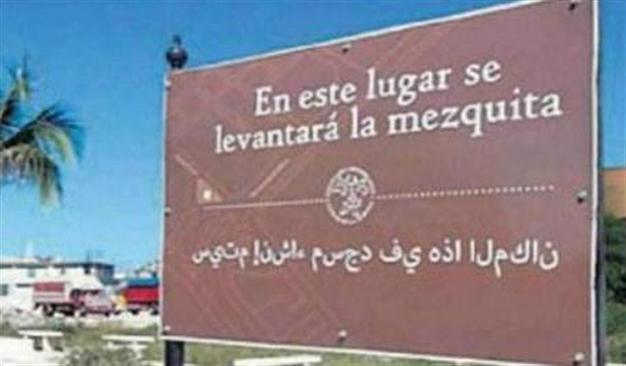Land for mosque in Cuba is ready, says Turkish Religious Affairs official
ISTANBUL

After the Turkish president said a mosque would be appropriate on the spot where he claims that Muslims discovered the Americas, a site has reportedly been allocated for a mosque’s construction in the Cuban capital Havana.
Five acres of land in the Old Havana district of the city have been spared, and Turkey’s Directorate of Religious Affairs (Diyanet) is working towards constructing the mosque, daily Vatan reported on Nov. 20.
Diyanet Vice General Manager Mustafa Tutkun, who is negotiating the possibility of a mosque’s construction in Cuba between Cuban officials and Turkey, said they had proposed the construction of a mosque similar to the picturesque Ortaköy Mosque in Istanbul. However, he added that Cuban officials would prefer the member states of the Organization of Islamic Cooperation (IOC) to construct the mosque, rather than one country.
“Our foundation is ready to pay the costs of [the mosque]. This idea first came out as our foundation’s project and bilateral visits then took place. The land where the mosque can be constructed is ready. We are thinking of building a [mosque] similar to the Ortaköy Mosque,” said Tutkun.
Speaking to an audience at the 1st Latin American Muslim Leaders Summit in Istanbul, Turkish President Recep Tayyip Erdoğan hit international headlines by claiming that Muslim sailors arrived in America in 1178, more than 300 years before Christopher Columbus. He also said Columbus had mentioned the existence of a mosque on a hill on the Cuban coast.
Erdoğan later instructed Turkey’s educational institutions to adopt a policy of highlighting the contribution of Islam to global science and arts, including the discovery of the American continent by Muslim sailors.
The president underlined that he is not the first to make this suggestion, referring to claims found in books written by Germany-based Turkish Professor Fuat Sezgin.
 After the Turkish president said a mosque would be appropriate on the spot where he claims that Muslims discovered the Americas, a site has reportedly been allocated for a mosque’s construction in the Cuban capital Havana.
After the Turkish president said a mosque would be appropriate on the spot where he claims that Muslims discovered the Americas, a site has reportedly been allocated for a mosque’s construction in the Cuban capital Havana.